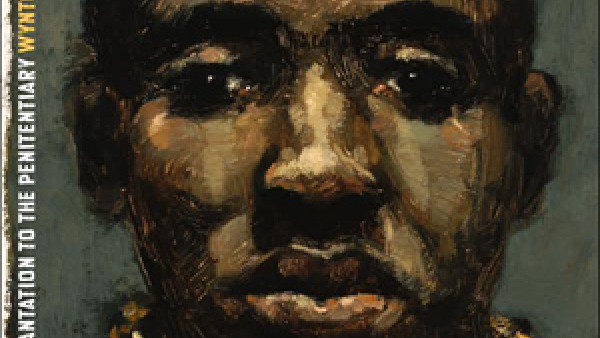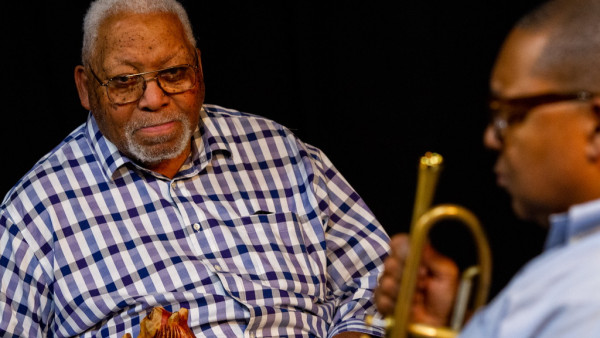Wynton Marsalis Finds Solace in the Optimism of the Blues
In early March, Wynton Marsalis, the trumpeter and composer, went into pandemic lockdown with a preconceived notion of all he might accomplish. “I thought that I would be able to practice a lot, exercise a lot and eat less, write a lot of music,” he said.
But as the managing and artistic director of Jazz at Lincoln Center, Marsalis had an arts organization to keep afloat. Then on April 1, his father and “North Star,” the jazz pianist and educator Ellis Marsalis Jr., died of complications from Covid-19.
So Marsalis shifted into overdrive — helping to develop Jazz at Lincoln Center’s online content, like the weekly conversation ““Skain’s Domain”:https://wyntonmarsalis.org/news/entry/skains-domain-an-intimate-weekly-conversation-with-wynton-marsalis,” orchestral collaborations like “Quarantine Blues” and even a virtual edition of its high school jazz band competition, Essentially Ellington. He also wrote a moving tribute to his father and a powerful statement about segregation and the killing of George Floyd, and has plans to release a new album, “The Ever Fonky Lowdown,” soon. “It’s about the hustle that’s being run on black and white folks,” he said.
All of which has waylaid Marsalis’s original plan. But it hasn’t stopped him from being consumed by the state of the world. In a phone conversation from his home in Manhattan, he elaborated on 10 things that have been on his mind and have kept him going through difficult times.
These are edited excerpts from the conversation.
1. Jazz as a Metaphor for Democracy
The first concept of individual freedom is improvisation. We give you more credit for improvising your own perspective, not to imitate or be part of some plan. The second is swinging, which is the opposite of improvisation. It means that you are challenged to find balance with other people, to balance yourself in their time.
But the difference is, we practice democracy in the way of a bunch of self-interested groups, battling for supremacy. In our music, the objective is to maintain your self-interest, but to understand that the momentum of the group is in your best self-interest. So it would be like if we were actually challenged to make life easier for our neighbors and for people who are not like us, like the drummer’s job is to play with the bass player — not to say: “Well, I play the loudest. Let me figure out how to play over this bass player or make them play in my time.”
2. The Blues
The fundamental form in all of American music — that’s what the blues is. It’s in every folk song, gospel song, the sound of the banjo and the sound of the guitar. It’s in the sound of ragtime, it’s in the sound of John Philip Sousa’s marches. It’s hard to get the blues out of your sound.
Blues is also call and response, which is a democratic form. It generally has lyrics that describe something tragic or sad. But many times it reverses that and gives you something that’s hopeful. The thing about “Quarantine Blues” that was so interesting is everyone wrote it and everyone arranged it. And we all wrote different things. There was not one emotion assigned to it.
3. “Skain’s Domain” Conversations
We’ve reinvented ourselves online. The idea of doing ““Skain’s Domain”:https://wyntonmarsalis.org/videos” came out of that experience of telling stories and keeping our community connected, and me having a chance to answer questions people may have.
You know, I always have met with people after every concert. I try to be the last one in the concert hall, and that’s been 40 years of that. People of all ages come on [“Skain’s Domain”], and I try and be as genuine in talking to them as directly as I would do if it were live.
4. His Father
Sometimes you have a really good relationship with one of your parents where it’s not something you can explain. And for me, it was like that. It’s deeper than love. It’s like an interest and an identification.
My father was real gentle as a person. He was much more like an intellectual. He taught a lot of people and loved his students, and a lot of people loved him. He had a good spirit and heart, and he was a humanist, so he always had a very broad-minded view. And he was happy for people who did great things. It didn’t matter who it was. It could be me, Terence Blanchard, Donald Harrison, Harry Connick Jr.
Everybody has a different relationship to the people that they mourn. We all digest our lives in different ways. The only thing I would tell people is just to be patient and try to come to your feelings without any judgment of them — even if it’s not to have feelings at all. That was one of my father’s crazy things. He’d always say, “Man, don’t feel like you got to make yourself feel any way.” He accepted this life as what it is.
5. Justice for George Floyd
I wrote that it’s more difficult to draw a crowd every day for the sanctioned and accepted forms of corruption and disrespect of black Americans that are shouted from countless recordings and videos — and even more powerfully whispered in the form of discriminatory laws, practices and procedures that result in unfair housing and employment practices and more tragically, lengthy, unjust prison sentences. And I should have said, even to death. So that summarizes how I feel about all of it. And have always felt, and have always said.
In the sense of this specific killing, there are things that we can do to correct that. Are we going to do those things? The Supreme Court just made a judgment about [workplace] discrimination and people’s sexuality. I agree with that 1,000 percent. Qualified immunity is one of the linchpins in police violence. And under the radar, they decided not to hear that. They left it up to the locals. The highest court in the land, symbolically, needs to say, “We’re going to put an end to this.”
6. The Beauty of Jazz
Duke Ellington, just the way he dressed and spoke. He grew up in a minstrel era, the whole kind of Stepin Fetchit mode. He was the opposite of that. Louis Armstrong, just the brilliance of his genius taught the entire world how to play and refuted the stereotypes of black people in his time. Benny Goodman put his life on the line to present an integrated band in 1936. Dave Brubeck had the first integrated band in the U.S. military. I’m just giving you a few. There are many more.
This is a great time for our mission [at Jazz at Lincoln Center]. We don’t have to change anything. Our mantra from our beginning was: “No segregation. No generation gap. And all of our music is modern.”
7. Essentially Ellington
I’m proud of all my alumni, the band directors, the level people are playing on. Just this year alone we had 25 Years, 25 Solos, which was great to hear how kids played across time. For me, it’s been an honor every single year to work with the judges and to hear kids play and to participate in their development.
8. Real Solutions
We form a collective voice around interests, but propaganda gets in the way of our actual interests. We need to attack, from a community standpoint, substantive issues. One is our lower-class economic infrastructure. What if we considered it an achievement to put our brainpower on doing that? How long do you think it will take us to figure that out? What about figuring out how to have universal health care that’s not connected to people’s jobs? What about education? We need to have big solutions to problems that will make us be a greater nation. And it is mind boggling how a nation with this kind of wealth can be this stingy about investing in the civic part of their civilization and culture. Those are life essentials.
9. Frederick Douglass and William Butler Yeats
I just read David Blight’s Frederick Douglass: Prophet of Freedom. It’s a fantastic book. Me and my father were reading it together, and I said, “Do you want me to tell you about the end of it?” And he said, “No, man, no. …” I actually met with David Blight. I absolutely love him. Just to have a chance to sit with David and talk about Frederick Douglass’ life and the 1850s with that kind of clarity.
And William Butler Yeats. That’s my man. I’ve read his poetry for years. I read it on the road. I read it to catch a bus. His worldview is a lot like my father’s — very grounded in an Eastern, spiritual overview. Sailing to Byzantium is a good poem for this time: “An aged man is but a paltry thing, A tattered coat upon a stick.” Yeats, he transcends.
10. My Colleagues
It has been an absolute blessing to work with my people. I can’t say that enough. Like, what I learned about my colleagues and what they were willing to do to climb up the mountain. Every day we have a management meeting. Twice a week we have a staff meeting. Once a week we meet with the orchestra. The way everybody has worked together has been one of the most enlightening, uplifting things for me in my entire life.
By Kathryn Shattuck
Source: The New York Times


